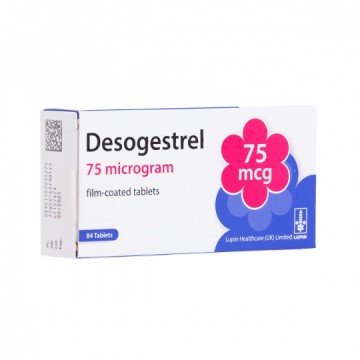Before we can issue a treatment, you’ll need to answer a short assessment. This assessment will help us recommend the right treatment for you.


Cerazette - Mini Pills
From £18.85
Cerelle
From £12.99
Desogestrel
From £11.99
Femodene
From £12.85
Femodette
From £15.85
Logynon ED | Combined Contraceptive Pill
From £13.85
Logynon Pill | Combined Contraceptive
From £13.85

Mercilon Combined Pill - For Birth Control
From £16.85
Microgynon 30 ED Tablets | Contraceptive pill
From £12.85
Yasmin - Birth Control Pill
From £21.99
Cerazette - Mini Pills
| Medication | Ashcroft Pharmacy |
|---|---|
| 75mg x1 | £18.85
Order now |
Cerelle
| Medication | Ashcroft Pharmacy |
|---|---|
| 75mg x84 | £12.99
Order now |
Desogestrel
| Medication | Ashcroft Pharmacy |
|---|---|
| 75mg x84 | £11.99
Order now |
Femodene ED
| Medication | Ashcroft Pharmacy |
|---|---|
| 3x28 Tablets | £15.85
Order now |
Femodene
| Medication | Ashcroft Pharmacy |
|---|---|
| 3x21 Tablets | £12.85
Order now |
Femodette
| Medication | Ashcroft Pharmacy |
|---|---|
| 3x21 Tablets | £15.85
Order now |
Logynon ED | Combined Contraceptive Pill
| Medication | Ashcroft Pharmacy |
Dr Fox |
Lloyds Pharmacy |
The Independent pharmacy |
Superdrug |
ASDA Onlinedoctor |
|---|---|---|---|---|---|---|
| 3x28 Tablets | £13.85
Order now | £15.00 | £15.00 | £22.99 | £20.00 | £15.00 |
Logynon Pill | Combined Contraceptive
| Medication | Ashcroft Pharmacy |
Dr Fox |
Lloyds Pharmacy |
Chemist 4U |
The Independent pharmacy |
Superdrug |
Simple Online Pharmacy |
ASDA Onlinedoctor |
|---|---|---|---|---|---|---|---|---|
| 3x21 Tablets | £13.85
Order now | £15.00 | £15.00 | £16.99 | £22.99 | £20.00 | £13.95 | £15.00 |
Marvelon - Combined Contraception Pill - Birth Control
| Medication | Ashcroft Pharmacy |
Dr Fox |
Lloyds Pharmacy |
Superdrug |
Simple Online Pharmacy |
ASDA Onlinedoctor |
Zavamed |
|---|---|---|---|---|---|---|---|
| 3x21 Tablets | £12.85
Order now | £13.20 | £16.00 | £15.99 | £12.95 | £14.00 | £19.99 |
Mercilon Combined Pill - For Birth Control
| Medication | Ashcroft Pharmacy |
Dr Fox |
Lloyds Pharmacy |
Superdrug |
ASDA Onlinedoctor |
|---|---|---|---|---|---|
| 3x21 Tablets | £16.85
Order now | £17.50 | £21.00 | £25.00 | £18.90 |
Microgynon 30 ED Tablets | Contraceptive pill
| Medication | Ashcroft Pharmacy |
Dr Fox |
The Independent pharmacy |
Simple Online Pharmacy |
|---|---|---|---|---|
| 3x28 Tablets | £12.85
Order now | £13.50 | £17.49 | £12.95 |
Microgynon 30 - Contraceptive pill (birth control)
| Medication | Ashcroft Pharmacy |
Dr Fox |
Lloyds Pharmacy |
The Independent pharmacy |
Superdrug |
Simple Online Pharmacy |
|---|---|---|---|---|---|---|
| 150mcg x63 | £11.99
Order now | £13.50 | £16.00 | £21.99 | £14.99 | £12.95 |
Yasmin - Birth Control Pill
| Medication | Ashcroft Pharmacy |
|---|---|
| 63 Tablets | £21.99
Order now |

